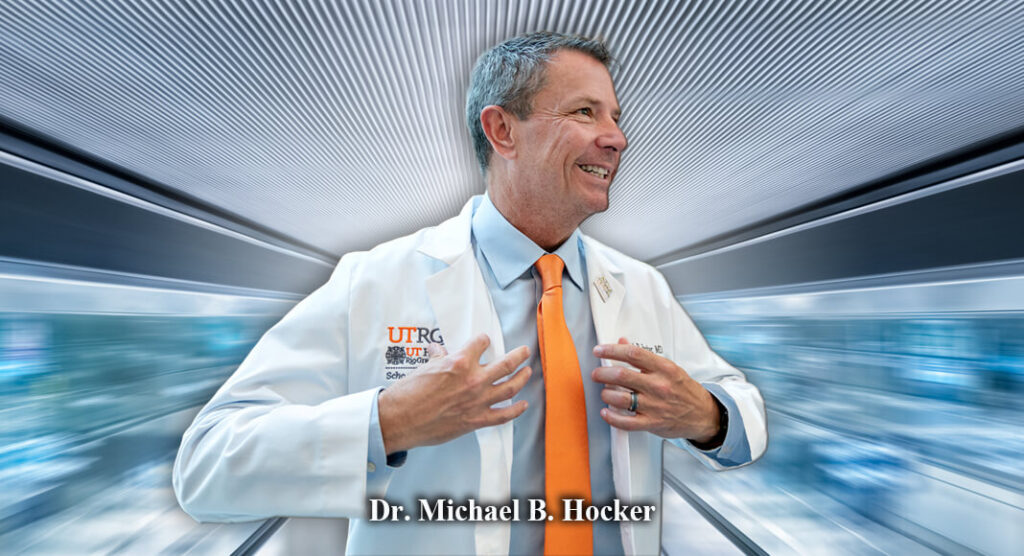
As originally published by Mega Doctor NEWS newsprint edition July 2021
The University of Texas Rio Grande Valley announced the appointment of Dr. Michael B. Hocker as the new dean of the UTRGV School of Medicine.
Dr. Hocker, who started his new role on June 28, holds the J. Harold Harrison M.D. Distinguished Chair in Emergency Medicine and currently serves as the senior associate dean and designated institutional official (DIO) for graduate medical education at the Medical College of Georgia (MCG) at Augusta University. In that role, Dr. Hocker oversees 51 residency and fellowship programs. Previously, he served as the vice-chair of Operations for Emergency Medicine and assistant DIO for graduate medical education. Get to know more about him in this issue.
They were great news while it lasted. The U.S. Food and Drug Administration approved Aduhelm (aducanumab) for the treatment of Alzheimer’s, a debilitating disease affecting 6.2 million Americans. Aduhelm was approved using the accelerated approval pathway, which can be used for a drug for a serious or life-threatening illness that provides a meaningful therapeutic advantage over existing treatments. Now, the FDA has issued restrictions for the treatment.
Most people with a serious mental illness like schizophrenia will not obtain adequate care. Many end up in correctional facilities on medication or become homeless. But Dr. Sarah Kopelovich, a psychologist in the Department of Psychiatry and Behavioral Sciences at UW Medicine, has a message: “Help is on the way.”
A proven treatment for psychosis has now been elevated at the highest levels. More in this issue.
On July 8, 2021, DHR Health celebrated the grand opening and ribbon-cutting ceremony of their DHR Health Neurotherapy Institute.
DHR Health officials were excited to offer this specialized service to residents of the Rio Grande Valley. The DHR Health Neurotherapy Institute provides compassionate care to those affected by stroke, brain injury, concussion, Post-Intensive Care Syndrome (PICS), spinal cord injury, limb loss, Parkinson’s disease, multiple sclerosis, vestibular and balance disorders, speech and swallowing deficits, and many other conditions. More in this issue.
Great News: A new pathway to treating type 2 diabetes is very promising. Researchers at the University of Arizona believe the liver may hold the key to new, preventative Type 2 diabetes treatments. Type 1 diabetes was once known as juvenile diabetes or insulin-dependent diabetes.
This year marks the 100th anniversary of the discovery of insulin, a scientific breakthrough that transformed Type 1 diabetes from a terminal disease into a manageable condition.
Today, Type 2 diabetes is 24 times more prevalent than Type 1. The rise in rates of obesity and incidence of Type 2 diabetes are related and require new approaches. University of Arizona researchers believe the liver may hold the key to innovative new treatments. More inside.
University of Melbourne Professor Jason Mackenzie is a laboratory head at the Peter Doherty Institute of Infection and Immunity (Doherty Institute). He wanted to investigate whether liquid chalk stopped SARS-CoV-2 transmission after conversations with his daughter – an elite rock climber heading to the Tokyo Olympics.
What? Liquid chalk is commonly used in gyms to improve grip. Melbourne researchers have found that it acts as an antiseptic against highly infectious human viruses, completely killing both SARS-CoV-2 (the virus that causes COVID-19) and influenza-A viruses.
Enjoy!










